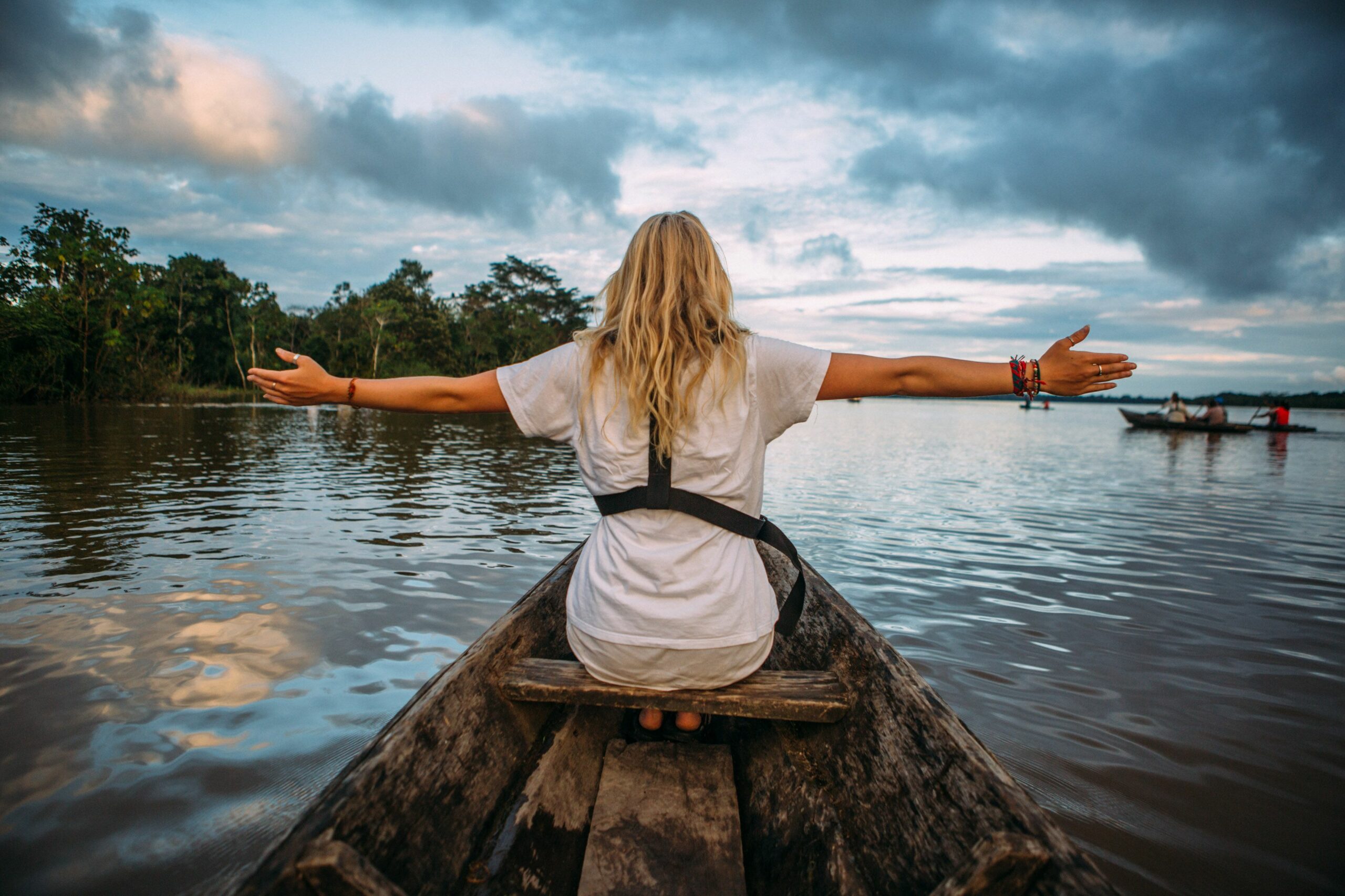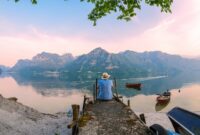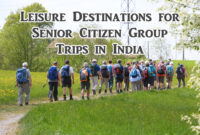Solo travel groups offer a unique blend of independent exploration and the camaraderie of like-minded individuals. Unlike traditional group tours or completely independent travel, these groups cater specifically to those wishing to travel alone but benefit from the structure and social aspects of a shared experience. This allows for a balance between personal freedom and the security of traveling with a group, fostering opportunities for both personal growth and meaningful connections.
This exploration delves into the diverse world of solo travel groups, examining their advantages and disadvantages, providing guidance on selection and preparation, and offering insights into the overall experience. From adventurous expeditions to relaxing cultural immersions, we’ll uncover the nuances of this increasingly popular travel style, helping you determine if a solo travel group is the right choice for your next adventure.
Defining Solo Travel Groups
Solo travel groups represent a unique niche within the broader travel industry, offering a blend of independent exploration and the camaraderie of shared experiences. Unlike traditional group tours where individuals often travel with pre-existing companions, solo travel groups are specifically designed to cater to individuals embarking on journeys alone, fostering connections and shared adventures among like-minded travelers. This contrasts sharply with independent solo travel, where the entire trip is planned and executed individually, and with traditional group tours, which typically involve families or established friend groups.
The appeal of solo travel groups lies in their ability to address the common concerns of solo travelers. Many individuals find the prospect of traveling alone daunting, worried about loneliness, safety, or the logistical challenges of planning a complex itinerary. Solo travel groups alleviate these anxieties by providing a built-in support network, pre-arranged itineraries, and opportunities to socialize with others sharing similar interests and travel styles. The sense of community and shared experiences can significantly enhance the overall travel experience, transforming a potentially solitary journey into a fulfilling and memorable one.
Types of Solo Travel Groups
Solo travel groups cater to a diverse range of interests and travel styles. The variety available ensures there’s a suitable option for nearly every traveler. This broad selection allows individuals to find a group that perfectly matches their preferred pace, activities, and budget.
Examples of Activities Offered in Solo Travel Groups
The activities offered within solo travel groups are as varied as the groups themselves. Adventure travel groups might include activities such as hiking challenging trails, white-water rafting, or rock climbing. Cultural immersion groups often incorporate visits to historical sites, cooking classes featuring local cuisine, or workshops on traditional arts and crafts. Relaxation-focused groups may offer yoga retreats, spa treatments, or leisurely sightseeing tours. Many groups also incorporate social events such as group dinners, cocktail hours, or informal gatherings, fostering a sense of community and shared experience amongst participants. For example, a cultural tour in Italy might include a guided walking tour of Rome, a hands-on pasta-making class, and wine tasting in Tuscany, all designed to immerse participants in the local culture. An adventure tour in Costa Rica could involve zip-lining through the rainforest, exploring volcanoes, and white-water rafting down a rushing river. A relaxation-focused tour in Bali might include daily yoga sessions, spa treatments, and meditation workshops.
Pre-Trip Preparation for Solo Travel Groups
Embarking on a solo travel group adventure requires meticulous planning to ensure a smooth and enjoyable experience. Proper preparation minimizes potential stress and maximizes the opportunity to connect with fellow travelers and fully immerse yourself in the journey. This section details the crucial steps involved in pre-trip preparation, covering essential documentation, packing strategies, financial management, and effective communication.
Visa Applications and Vaccinations
Securing necessary travel documents is paramount. This involves researching visa requirements for your destination well in advance. Many countries mandate visas for specific nationalities, with processing times varying considerably. Applying early allows ample time to address any potential delays. Similarly, understanding the recommended vaccinations and necessary health precautions for your destination is crucial. Consult your physician or a travel clinic several weeks prior to your departure to receive the appropriate vaccinations and discuss any potential health concerns related to your itinerary. Remember to bring a copy of your vaccination records with you on your trip.
Packing for Different Solo Travel Group Adventures
A well-planned packing list significantly impacts your trip’s success. The specifics will vary based on the type of adventure.
For example, a backpacking trip through Southeast Asia would necessitate a lightweight backpack, versatile clothing items (quick-drying shirts, convertible pants), comfortable hiking shoes, and essential toiletries in travel-sized containers. Conversely, a cultural tour of Europe might require more formal attire, comfortable walking shoes, and perhaps a small daypack for sightseeing.
A crucial element regardless of the adventure type is a well-organized packing cube system to maintain order and maximize space within your luggage. Consider including a universal adapter, a portable charger, and any necessary medications. A comprehensive first-aid kit is also recommended, containing bandages, antiseptic wipes, pain relievers, and any personal medications.
Managing Personal Finances and Budgeting
Careful financial planning is essential for a stress-free group trip. Before departure, create a detailed budget that encompasses flights, accommodation, activities, food, transportation, visa fees, and miscellaneous expenses. Consider using a budgeting app or spreadsheet to track your spending throughout the trip. Research the local currency exchange rates and consider using a travel credit card with low foreign transaction fees. It’s advisable to inform your bank of your travel dates to avoid any issues with card usage abroad. Carry a mix of cash and cards, keeping a portion of your funds separate from your main spending money for emergencies.
Communicating Effectively with Group Leaders and Fellow Travelers
Open and respectful communication is key to a positive group experience. Before the trip, familiarize yourself with the group itinerary and any specific communication channels used by the group leader (e.g., WhatsApp group, email updates). Actively participate in pre-trip communication to clarify any questions or concerns. During the trip, be mindful of group dynamics and respectful of fellow travelers’ preferences. Communicate any personal needs or limitations to the group leader promptly and directly. Remember that effective communication fosters a positive and inclusive group environment, enhancing the overall travel experience.
Post-Trip Reflections
Returning from a solo travel group experience leaves a profound mark, extending far beyond the souvenirs and photographs. The journey fosters introspection and personal growth in ways that traditional vacations often don’t. The shared experiences, coupled with the independent exploration, create a unique blend of camaraderie and self-discovery.
The lasting impact of a solo travel group experience on an individual’s personal development is multifaceted. Participants often report increased self-confidence, enhanced problem-solving skills, and a broadened perspective on different cultures and ways of life. The act of navigating unfamiliar environments and social situations independently builds resilience and adaptability. The shared challenges and triumphs within the group further strengthen these skills, creating a supportive environment for personal growth that goes beyond typical solo travel.
Lasting Impacts on Personal Development
Solo travel groups provide a structured environment for personal growth. The experience of overcoming challenges, both individually and collectively, leads to increased self-reliance and a stronger sense of self-efficacy. For example, a participant might initially feel apprehensive about navigating public transport in a foreign country, but successfully doing so builds confidence and a sense of accomplishment. Furthermore, interacting with diverse individuals from different backgrounds fosters empathy and understanding, expanding one’s worldview and challenging preconceived notions. The shared experiences within the group create a supportive environment where individuals feel comfortable pushing their boundaries and stepping outside their comfort zones.
Maintaining Connections with Fellow Travelers
The bonds formed during a solo travel group trip can be surprisingly strong and enduring. The shared experiences and challenges create a unique connection between participants. Maintaining these connections post-trip can be easily achieved through various methods. Social media platforms like Facebook or Instagram provide a convenient way to stay in touch and share updates. Creating a dedicated group chat allows for ongoing communication and the sharing of memories. Organizing virtual meetups or even future trips together can further strengthen these bonds and provide opportunities for continued camaraderie and support. For example, a group might decide to have a monthly virtual “coffee date” to catch up and reminisce about their experiences.
Documenting and Remembering the Experience
Effectively documenting a solo travel group experience is crucial for preserving the memories and insights gained. Traditional methods like journaling allow for detailed reflection on personal growth and emotional experiences. Writing about daily events, thoughts, and feelings provides a rich record of the journey. Similarly, creating a photo album or scrapbook offers a visual representation of the trip, capturing both the major events and the smaller details. More creative approaches could involve creating a travel blog, compiling a playlist of music that evokes memories of the trip, or even crafting a short film using video footage and photos. The key is to choose methods that resonate with the individual and allow them to express their experience authentically.
A Typical Post-Trip Reflection
Imagine Sarah, a participant in a two-week solo travel group to Southeast Asia. Initially apprehensive about traveling alone, Sarah found herself gradually gaining confidence as she navigated bustling markets and interacted with locals. Her journal entries detail her initial anxieties, followed by a gradual shift towards self-assurance and a sense of empowerment. She describes feeling overwhelmed at first, but eventually, she describes a growing sense of accomplishment and a profound appreciation for the resilience she discovered within herself. The group dynamic, she notes, was instrumental in her growth, providing a supportive network during challenging moments and opportunities to celebrate shared successes. Upon returning home, Sarah felt a noticeable shift in her perspective. She was more confident, adaptable, and open to new experiences. The vibrant colors and sounds of the markets, the warmth of the local people, and the bonds she formed with her fellow travelers had left an indelible mark on her heart and mind, shaping her in ways she never anticipated.
Last Recap
Ultimately, the decision to join a solo travel group hinges on individual preferences and travel styles. While independent travel offers unparalleled freedom, solo travel groups provide a structured environment conducive to meeting new people, overcoming travel anxieties, and experiencing destinations with a supportive community. By carefully considering the benefits and drawbacks, researching options, and preparing adequately, you can embark on a rewarding and enriching journey, forging lasting memories and personal growth along the way.




